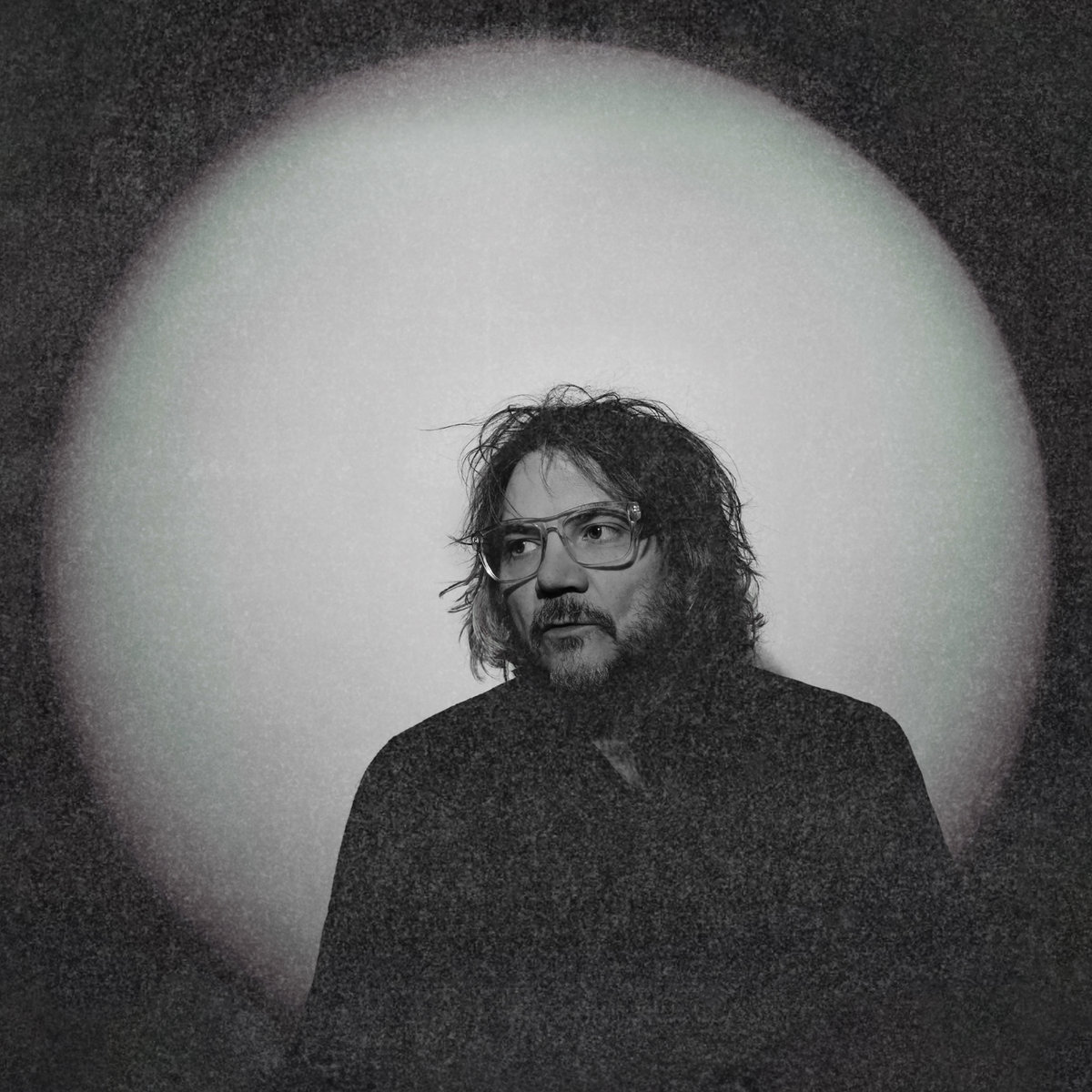- One Little Independent
- 2022
Björk Guðmundsdóttir, venerable musician and early tech adopter – app impresario, VR utopian, entire chunk of MoMA real estate – has become, like so many of us, a podcaster. Specifically, on Sept. 1, she launched a series called Sonic Symbolism. Each episode consists of 40 minutes-ish of Björk playing, then explicating, one album from her considerable career. There are also show notes, which read like pages from zoomer tome the Aesthetics Wiki. For Volta: "Justice, fire, anthropology, wanderlust, activist, brass, boats, feminist, red, neon green, electric blue, flags, trumpets, tribal beats, bombastic." Regarding Medulla: "Primordial, motherhood, black braided hair, breastfeeding, passive, pre-civilisation, goth, folk, archeology, bones, family around campfire."
These "moods and timbres," these pure feels, are pretty close to how Björk is received today. She has perhaps never been more beloved by the general public since Vespertine and Post. The things that once got her dismissed as an oddity (to be clear, by people who were wrong) have now made her embraced as a living vibe: everyone's meme mom. This is probably to be expected in stannified 2022. But it's also deeply strange because of all her musical peers, Björk is the absolute last artist you could reduce to a vibe. Her albums, especially her most recent work, are cerebral and uncompromising; they do not reward shallow listening. She is too earnest and low-irony for easy TikTok-era recontextualization. (I checked TikTok so you don't have to: They're split between "how could anyone possibly dislike this," "how could anyone possibly like this," a mildly amusing IT pun, and a dog drinking doggy wine.) Even her aesthetics are aesthetics of one. Fossora is an album about mushrooms and matriarchy, arranged for choir, clarinet, and gabber; if there is another one of those, I am not aware of it.
Björk would dispute every part of this. In interviews for Fossora, she claimed that her music has not in fact gotten more cerebral or experimental since the '90s, no matter what our normie ears hear: "Maybe they remember themselves in some club doing ecstasy." She began recording while locked down in Iceland and envisioned the record as an extension of that village homebody life, a third place of an album where listeners can, in her words, "walk into this fantasy, have a lunch and fart." (If you take nothing else away from this review, it's that you absolutely should look up Björk's interviews immediately.)
Then there is the central paradox of Björk's music: She is an iconoclast who is nevertheless enraptured, like an obsessive scientist or limerent lover, by our common humanity. She sings about merging with others on a level so deep you can't grasp the enormity of the connection without getting into theoretical mathematical n-dimensions, or perhaps the astral plane. She is singular but not solipsistic, and her music has broadened its scope over time to encompass not only human behavior but humanity's place in society, posterity, the cosmos itself. That place shrunk on Fossora, as much of the world's, to her hometown and her family. Her children Isadora and Sindri both sing on the record. The Hamrahlíð Choir, an Icelandic ensemble Björk sang with as a teenager, is featured heavily. Two songs on Fossora are eulogies for Björk's late mother, environmentalist Hildur Rúna Hauksdóttir, whose "nihilism," Björk sings, she rejects by existing. They find Björk and choir at her most hushedly reverent even as her lyrics are her most heartbreakingly blunt: "The machine of her breathed all night… and then it didn't."
Fossora is fluid, less an album of songs than one theme with choreographed entries and exits, crescendos and fadeouts, and songs as intermissions. In case it needed saying, very little of it makes sense as an event single, especially not most of its singles. The title track comes closest, compressing all of Fossora’s themes into an uptempo coda. It sounds like you took some landfill synthpop song, dug out the 10 seconds of bridge breakdown that made it a banger, expanded that 10 seconds to 4:19, then set it outside to see how much moss it could grow.
There are three of those themes, total. The two expected ones are the meandering clarinet arrangements and modern choir settings from Björk's large extended ensemble. Then there are the beats, an addition so jarringly modern there's no more fitting term than just "The Beats" – loping, reggaeton-adjacent beats, early-aughts bedroom-electronica beats, rapid-pulverization gabber beats like the ones Björk dropped in Christmas DJ sets. The former two are edited with care and conducted with a choir conductor's hypergranular tough love. (There are two conductors, actually, depending on the ensemble: longtime Hamrahlíð conductor Þorgerður Ingólfsdóttir or new graduate Ragnheiður Ingunn Jóhannsdóttir – here's her as a young soprano. For a worldwide event album, Fossora is refreshingly local in this way.) The beats were spliced in by beatmaker and Björk group chatmate Kasimyn of Indonesian duo Gabber Modus Operandi; the duo's other member, Ican Harem, Björk cut from the album after he was accused of sexual assault this summer.
These three elements, of different tempos, genres, and yes, "timbres and moods," don't coalesce on the first listen or even first several. It feels like you're hearing two things that had never before been grafted together and also, simultaneously, the reason no one had attempted it. But the internal logic is there to be listened for. It helps to move, to walk fast or run; this is an album about growth, not stagnation, and should be felt in the body. When the beat kicks in, the rest of the arrangement sounds weaponized too: stabby clarinet feints, vocals that go smooth, the way a fast-spinning blade is smooth. When there is no beat, you begin to imagine it there anyway and notice the contours where it would go. It feels as if the rest of the arrangement is a rock that Björk could at any point turn over, revealing its undergrowth in all its grime and excitement (because if you're going around turning over rocks, you likely do find that exciting, and if you're really into this Björk era, you likely do too.)
The outliers, as frequently are with Björk, are her most interesting. "Mycelia" and "Trölla-Gabba" work as a pair. The former is an interlude of chopped and sampled a cappella soprano vocals that are very pleasant – and contain the closest thing I've heard to the human voice producing a cartoon-staircase glissando – but almost conventional. It sounds like Björk being influenced, circularly, by the likes of Caroline Polachek or Imogen Heap being influenced by Björk. Then "Trölla-Gabba" comes around and reworks the same motifs into something that sounds like the murmurs of a warehouse art show, sampled from 15 minutes before that warehouse collapsed into scrap metal. "Victimhood" turns the titular concept into a sepulchral horror soundtrack complete with jump scares. Björk's vocal, usually the strongest thing on the track even as the beat is turning everything into infinite punching bags, recedes into the background about two-thirds of the way through: a force, met by a stronger one.
"Fungal City" invites as its newest resident Björk's biggest-name guest: R&B auteur serpentwithfeet, who does for gospel music what Björk did for college rock. His sinuous voice fits in perfectly. So does that of Norwegian singer-songwriter Emilie Nicolas on "Allow," the one song that's simultaneously the most and the least like an outlier. "Allow" wasn't even meant for Fossora – she cut it during the Utopia sessions – yet thematically, it fits best at all. The track is densely intimate, almost palpably up-close and breathy: shuddering flute notes, panting thick as mist, words drawn out and repeated to tease out every connotation. Nicolas' verse, in counterpoint, is a coquette's poem – "how mysterious I must feel to you" – while Björk's eroticizes, and also exemplifies, the album's much-memed-on mycological theme: "Allow me to grow."
That's the thing about mushrooms: They mushroom. They grow and permeate through everything, more or less wherever they want, including places of death and decay – because, in the words of a wise online sage, decay is an extant form of life. (OK, just one meme, because it is perfect.) Or in the words of a musical sage: "If my plant doesn't reach towards you, there's internal erosion towards all." Whenever I talk to people I know about Björk's recent albums, I keep hearing one theme: that they're impenetrable, lofty, arty musical tomes, easy to admire and hard to love. But – and I'm sure hundreds of haters have had this lyric quoted to them by now – are these not just excuses to not connect? In every reaching toward, there is the possibility of grasping.
Fossora is out now on One Little Independent.







